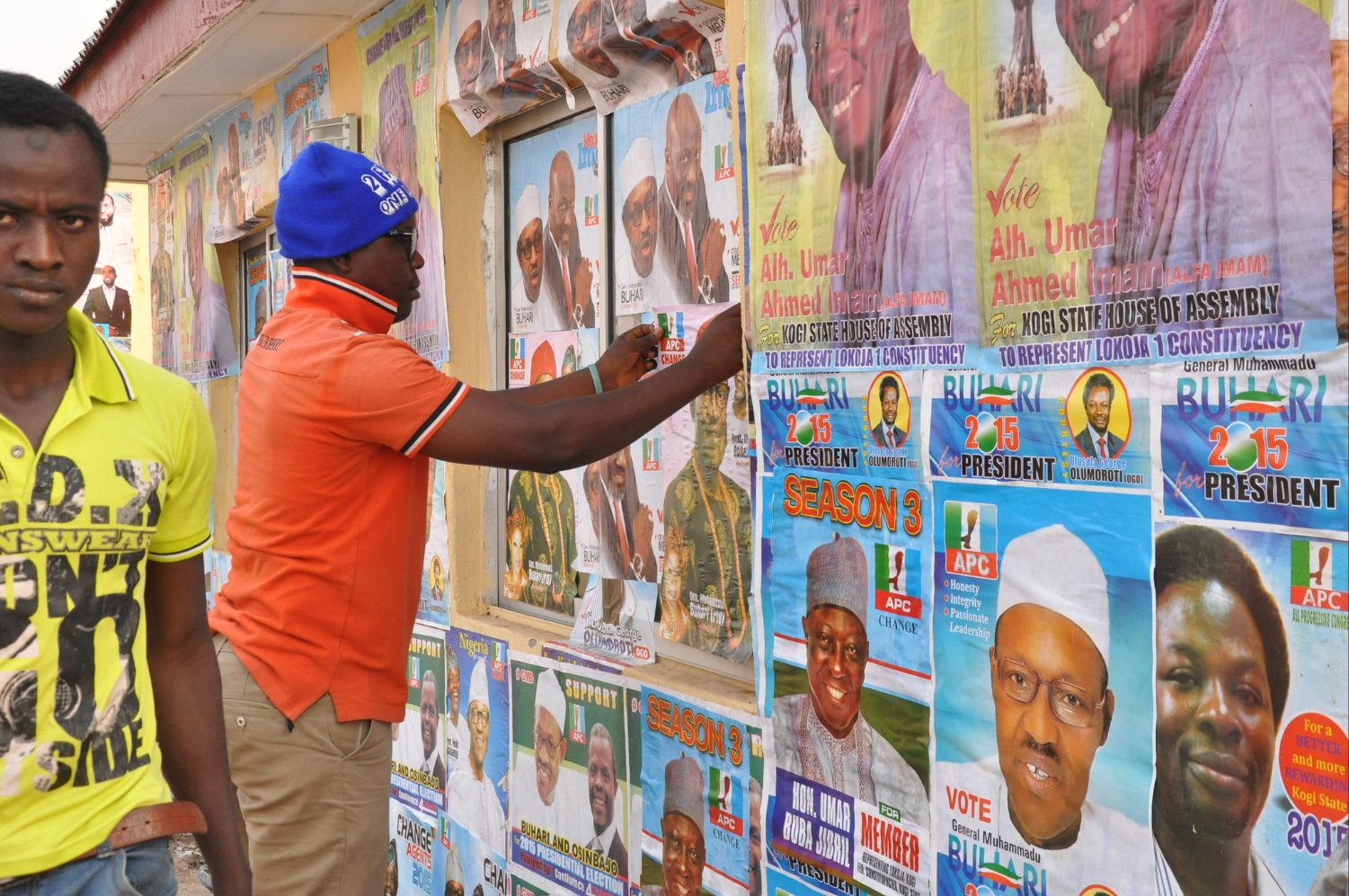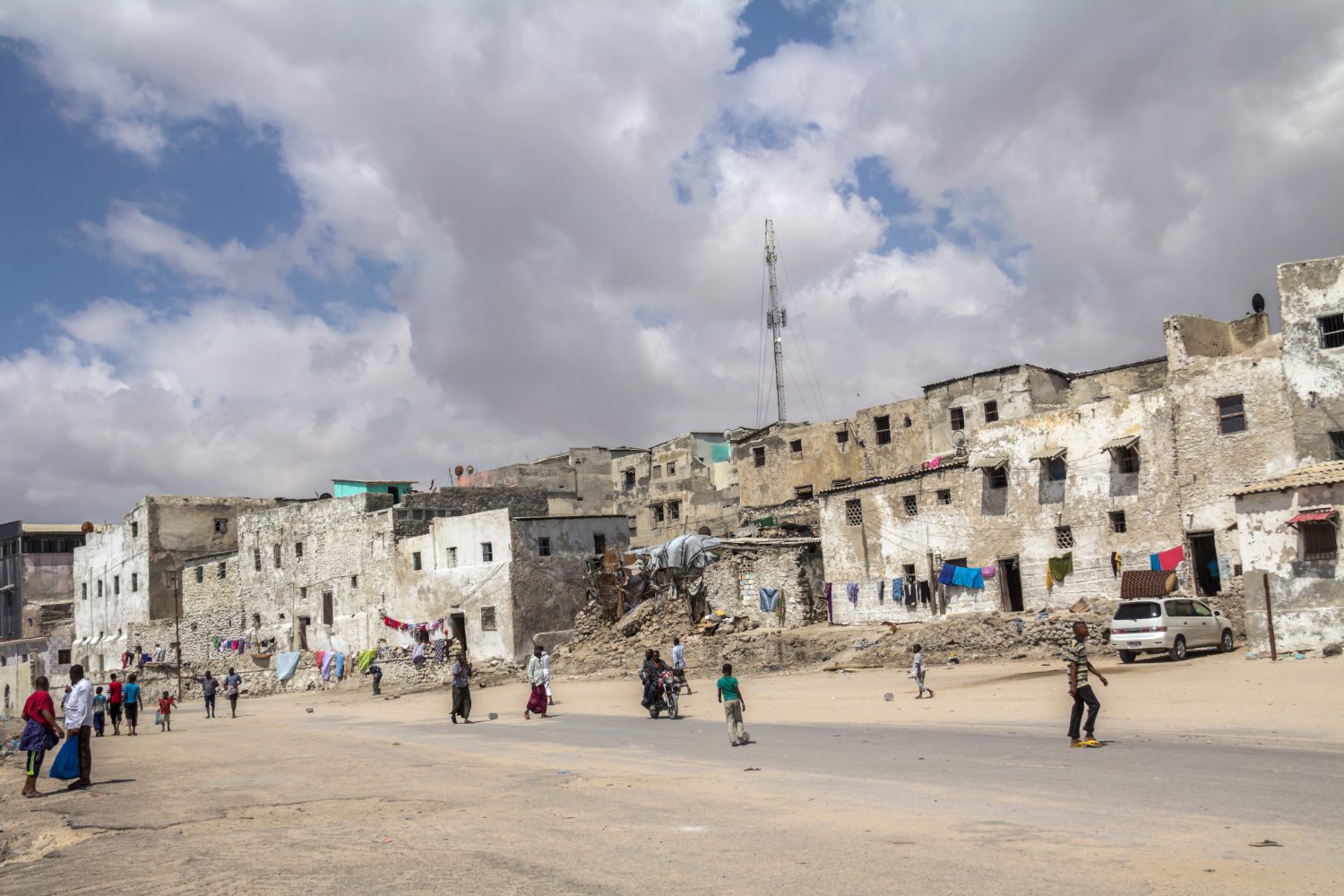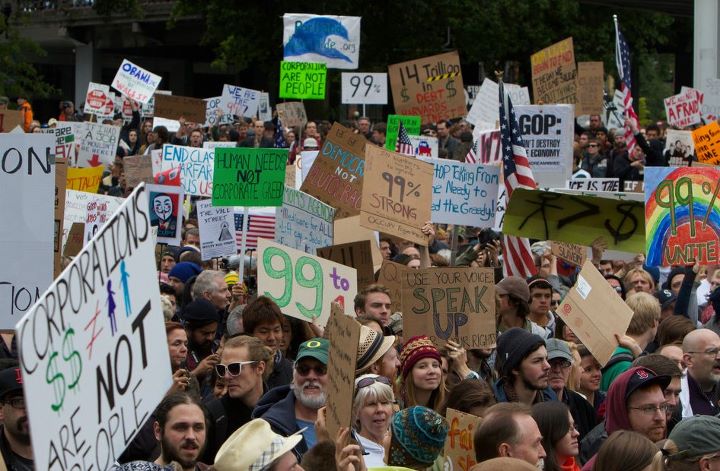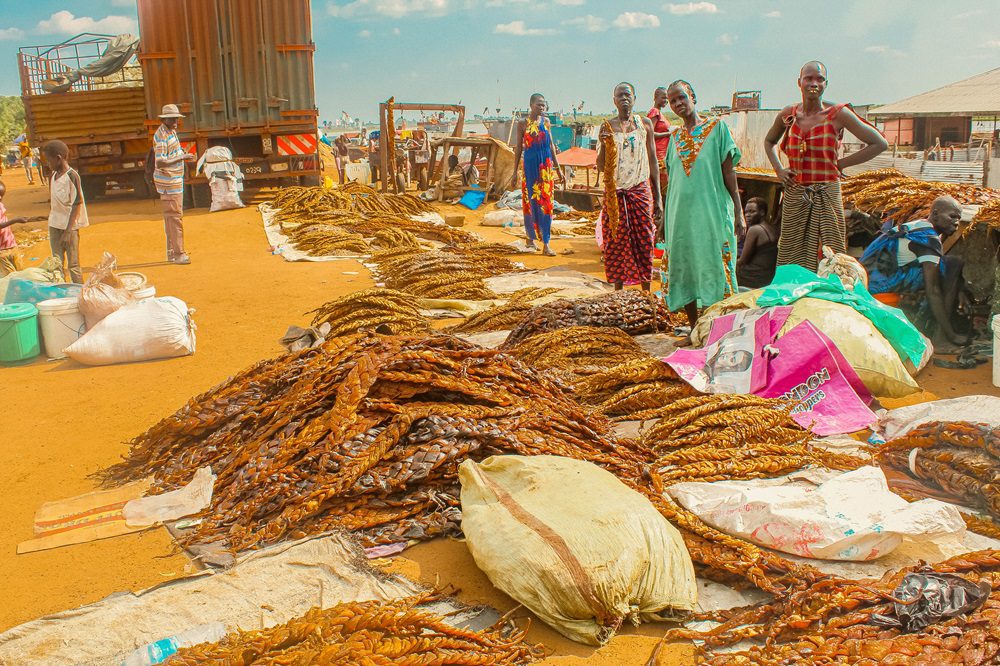This blog post is part of the “Political Marketplace” program in collaboration with the research consortium, PeaceRep, based at the University of Edinburgh. The program is supported in part by the UK Foreign, Commonwealth & Development Office.
Political marketplace contexts, meaning countries where transactional politics dominate formal institutions, are often violent, with high rates of poverty and hunger. Examples include countries such as the Democratic Republic of the Congo, Sudan, and Iraq among others. Within these countries, political power is treated as a commodity that is bought, sold, and violently fought over leading to the immiseration of the population. Recognizing these pernicious patterns, how can violence be addressed and any sense of accountability of officeholders to citizens be created?
Based on in-depth research in Nigeria, this blog summarizes findings on how conflict transformation efforts contributed to peace and accountability, as well as their limits. In addition, it discusses how elections undermined these efforts and instead reinforced the accountability of officeholders to elite actors rather than to voters themselves—perpetuating the dominance of Nigeria’s dealmaking politics.
Nigeria’s Political Marketplace
“This government is not a democracy. . . this is criminal governance.”
–Male Community Member, Plateau State
Nigeria’s politics are kleptocratic, rent-seeking, suffuse with violence, criminality, and identity politics. Officially, contemporary Nigeria (1999 – present) operates as a federal republic, but the politics are transactional, rent-based politics often cloaked in ethno-religious rhetoric. Elections are the official way that leaders are chosen, but it is the deals stuck among the elite that determine who holds and can exercise political power. This competition plays out within, in the guise of, and outside of formal institutions, across political geographies (levels of government and regions of the country), and in deals brokered with the public. Each of these deals is backed with money—political budgets—or violence. In this way, Nigeria is a quintessential political marketplace.
Nigerians are well-versed in the challenges of transactional politics and the difficulties of holding politicians accountable. In one interview, a peacebuilding practitioner told me, “When you take power away from those who long held it, it is not taken easily. This is where people need to hold government accountable so they can make a statement.” He went on to say that in order for Nigerians to be able to hold their government accountable, they needed to “be empowered to engage leaders. . .people must be organized.” Yet the coalitions he described, and those that are echoed in the democratization literature as mechanisms of political change, seemed far-fetched in contexts like Nigeria where violence has torn the social fabric of communities, exacerbating and creating settler-indigene and ethnoreligious tensions. This, however, was exactly what local level conflict transformation trainings and multistakeholder dialogues were attempting to do.
Plateau State in northern Nigeria epitomizes how the country’s transactional politics intersects with identity and resource politics while also providing the opportunity to understand the impact of local level conflict transformation efforts on accountable governance. Due to its ethnic and religious diversity, Plateau State is seen as both a microcosm of the country, and as a bellwether for the country’s ability to function as a peaceful, democratic state. Plateau State has more than 50 different ethnic groups, none of which constitute a majority of the population, and a mix of Christians, Muslims, and traditional religions.
Since 1991, Plateau State has also been the site of cycles of violence driven by several intersecting causes, many stemming from “an interaction between political crisis (caused by politics of money) and resource competition taking place against a background of various predisposing factors.” This violence is best understood as a self-reinforcing, ethnically-defined security dilemma that encouraged zero-sum politics first between settlers and indigenes, and then among ethnic groups within each category. Because of rhetoric and patterns in violence, the conflict is often mistakenly seen in overly simplistic religious (Muslim vs. Christian) or ethnic terms (Berom, Anaguta, and Afizere vs. Hausa and Fulani) which obscure how the divisions between these groups have been politicized and manipulated by those in power. In essence, identity has been subsumed into the dealmaking politics of the marketplace.
Findings from Nigeria
Over the last 34 years, violence across Plateau State has claimed thousands of lives and displaced hundreds of thousands. In response, Plateau State has been the focus of numerous initiatives aimed at resolving and preventing violence. This is where my research focused.
I wanted to understand whether local level conflict transformation trainings and dialogues contributed to more accountable governance, and if so, how. Between 2022 and 2024, including two months of field work in Nigeria, I interviewed 84 interlocutors (31 women; 53 men) in in-depth interviews and focus group discussions. From this, two key findings emerged: 1) how dialogues contributed to the formation of cross-cutting coalitions; and 2) how elections undermined these coalitions and instead reinforced the accountability of officeholders to elite power brokers.
1. Community Dialogues as a Mechanism to Build Cross-Cutting Coalitions
One of the dominant conflict transformation approaches used in Plateau State was setting up local level multi-stakeholder dialogues to bring together community members across conflict lines with security and government officials to discuss outbreaks of violence and create action plans on how to respond. Informed by Contact Theory and problem-solving workshop theory, the idea was that the process of engaging in the dialogues would begin to rebuild trust and relationships not only across ethnoreligious divisions, but also with the security and government officials who were not responsive to community needs. These relationships would then facilitate joint action to proactively address warning signs of violence and be robust coalitions to resolve violence when it did occur. Interlocutors repeatedly described how the dialogues allowed them to better understand individuals they once perceived as their enemy and instead begin to work with them to address violence in their communities. Indeed, many interlocutors attributed the relative peace in 2022 to the work of these dialogue groups across the state.
What was especially striking is how some of these connections established during the local level dialogues continued long after the NGO funding for the platforms ended. While they no longer met in a formal capacity, interlocutors described how they still called each other to respond to rumors in the community, attempt to mediate conflicts to avoid escalations to violence, and attempted to leverage their connections to security forces that were once part of the platforms. Inter-ethnic and religious coalitions emerged organizing protests demanding the government address corruption, poor governance, and demanding accountability for their actions. This finding provided evidence of the long-lasting impact of intergroup contact and problem-solving workshops. However, interlocutors were also quick to identify the limitations of these approaches.
The dialogues were set up to resolve and prevent violence, but the factors driving the violence were often connected to governance issues. While the dialogues showed some success in addressing communal violence, interlocutors reported that they were never able to get the government to buy into addressing the governance issues. When they raised concerns over land issues, poor governance, or a lack of basic infrastructure, they were met with empty promises or politicians that would avoid the dialogues all together. In essence, while the dialogue programs showed some success addressing communal conflict and strengthening the social fabric of the communities, they were unable to make structural changes.
2. Elections as Barriers to Change
The second major finding was about the surprising impact of elections. Rather than acting as a mechanism for voters to hold elected officials accountable, elections reinforced the accountability of officeholders to elite actors within the political system and undermined the very coalitions emerging from the community dialogues. This was not inherent, but due to how transactional politics dominated the electoral process.
Elections within Nigeria are immensely and intentionally expensive – amounting to millions of dollars even for state-level positions. As interlocutors (including political candidates and campaign staff) told me, in Nigeria, one’s success in an election is determined by how much money they have supporting them. This money is not simply used to launch campaign ads, but in the logic of the political marketplace, to buy political support and grease one’s way through the allegedly democratic process. From bribing one’s way through the primary, to giving “gifts” to influence brokers and kingmakers, buying votes on election day, and even hiring armed actors to intimidate opponents and voters alike—all of this requires money. Even registering as a candidate with one of the main political parties can amount to tens or hundreds of thousands of dollars, often more than the candidate would make from their official salary while in office. To put this in context, in 2022, 40% of the country lived on less than $2 USD per day.
It is not uncommon for election cycles around the world to be exorbitantly expensive, but in Nigeria, the cost of competition creates a dependency on wealthy power brokers (e.g. godfathers), requires embezzling state resources to afford the monied competition, or simply limits competition to those who count themselves within the billionaire class. All of this reinforces the ties between the candidate and their financiers who seek to reclaim their investments via lucrative state contracts once the candidate is in office.
Elections in Nigeria are often an exercise in manipulation, bribery, and coercion rather than democratic voice. This process not only undermines confidence in the democratic process, but the competition itself fractures the inter-ethnic and religious coalitions that were built through the conflict transformation dialogues. In 2023, this included politicians who campaigned on identity politics using coded language; those that bribed religious and traditional leaders to mobilize communities on their behalf; and those that hired armed actors to intimidate opponents or keep certain voter bases at home—all of this undermined the ethnoreligious trust and collaboration the dialogues created (read more about these dynamics in my 2024 PeaceRep report).
Implications for Building Peace and Accountability in Transactional Political Systems
What does this all mean for understanding how to build peace and accountability in transactional political systems?
First, my research shows evidence of how local-level dialogue efforts can build coalitions capable of resolving communal conflict and putting pressure on the government. However, without making structural changes that address underlying sources of the violence, these efforts are unlikely to shift the system or sustainably interrupt the cycles of corruption and violence. While these did not shift the system, it is hard to overstate the importance of inter-ethnic coalitions emerging out of the violence that once dominated the state. These cross-cutting coalitions are important building blocks of a more accountable and peaceful political system.
Second, elections in Nigeria are moments of democratic hope, but as they currently exist, have done more to reinforce ties between officeholders and elite actors than to voters themselves. In addition, elections are when inter-ethnic coalitions of actors united for common causes such as poor governance are challenged and manipulated by politicians who use identity politics to garner support for their candidacy.
This research does not reveal a “silver bullet” of how to build peace and accountability within transactional political systems but does provide insights on the impact of local level dialogues as well as a clear-eyed analysis of their limits and the challenges faced during elections. There is still much to be learned about how to shift these systems and I hope researchers build on this work.



